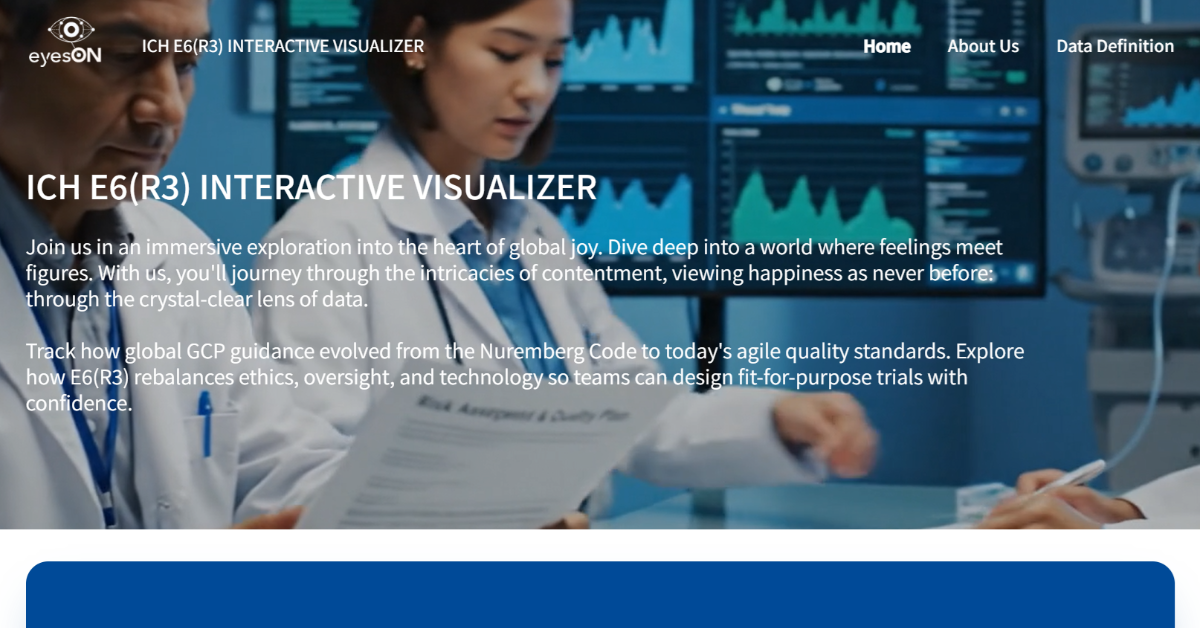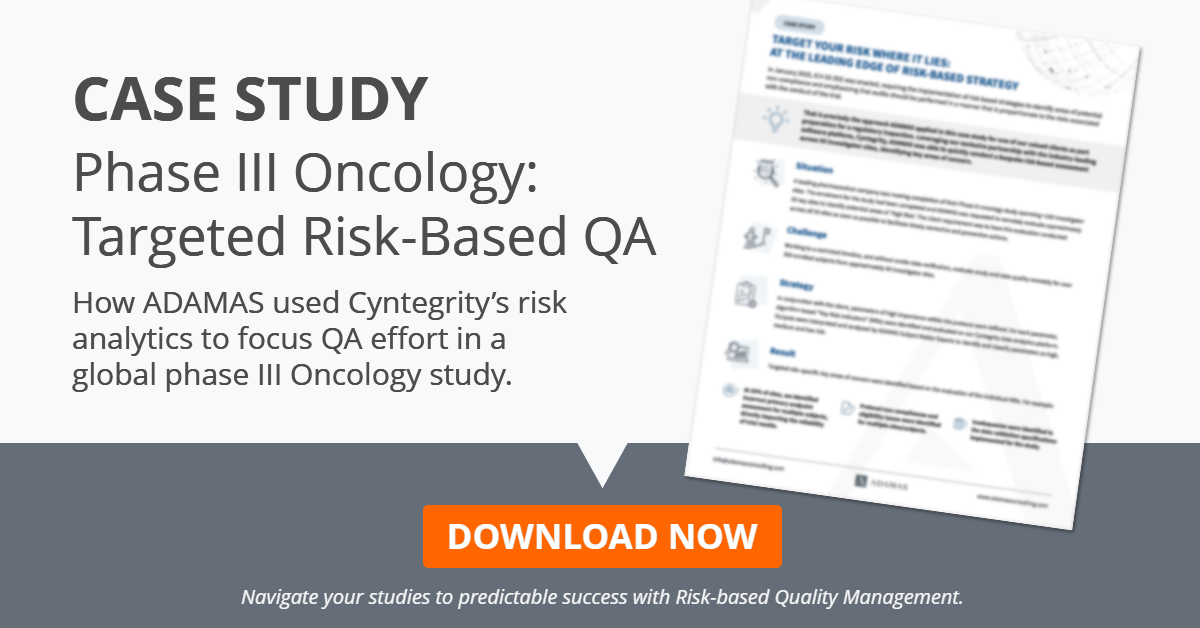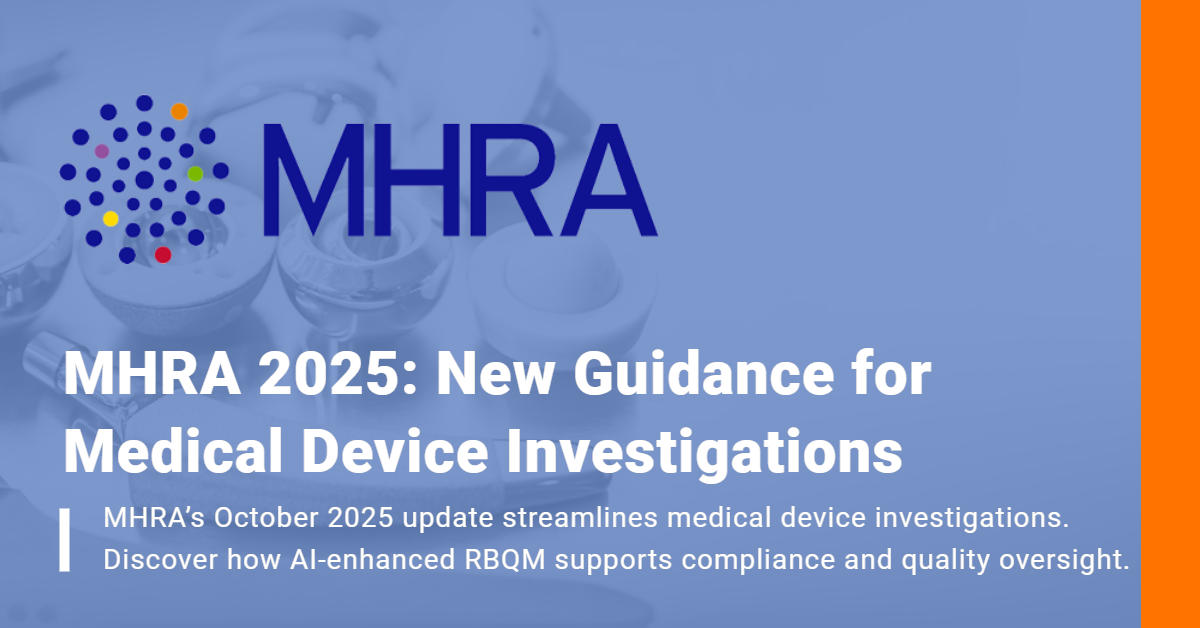The clinical research landscape is evolving, and with it comes a significant update to the Good Clinical Practice (GCP) guidelines. The transition from ICH E6(R2) to ICH E6 R3 introduces crucial changes that will reshape how clinical trials are conducted worldwide. For sponsors in the pharmaceutical and biotechnology sectors, understanding and preparing for these changes is essential to ensure compliance, maintain trial quality, and ultimately bring new treatments to patients more efficiently. The guideline was initially scheduled to come into effect in October 2024, but due to the high number of public consultation comments, it is now anticipated to be implemented in early 2025.
What is ICH E6 R3?
The International Council for Harmonisation (ICH) E6 guideline provides a unified standard for the European Union, Japan, the United States, and other countries to facilitate the mutual acceptance of clinical data by regulatory authorities. The upcoming ICH E6(R3) revision builds upon the principles established in R2, significantly expanding sponsor responsibilities in several key areas.
At its core, ICH E6 R3 emphasizes:
- Quality by Design (QbD)
- Risk-Based Quality Management (RBQM)
- Enhanced data integrity and security measures
- Evolving monitoring practices
- Increased oversight of service providers
These elements aim to integrate quality into clinical trial design from the outset and focus on proactive risk management throughout the study’s lifecycle.
Key Changes for Sponsors in ICH E6 R3
1. Expanded Sponsor Responsibilities
Under ICH E6(R3), sponsors are required to take a more comprehensive approach to risk management. This includes:
- Systematic risk identification, assessment, control, and communication
- Continuous risk reviews throughout the trial
- Ensuring all processes align with predefined quality standards
Implementing a robust BBQM strategy that covers all aspects of trial design and execution will be key going forward.
2. Data Integrity and Security
With the increasing digitization of clinical trials, ICH E6 R3 places a stronger emphasis on data governance. Key requirements include:
- Stricter protocols for handling and protecting clinical trial data
- Ensuring data accuracy, completeness, and traceability
- Adopting advanced data management practices to prevent breaches in confidentiality and integrity
In order to meet the new standards outlined in the revised guideline, review and upgrade your data management systems and processes.
3. Evolution of Monitoring Practices
ICH E6(R3) recognizes the shift towards more efficient monitoring methods:
- Increased emphasis on remote site monitoring and centralized monitoring
- Reduced reliance on on-site visits
- Integration of Risk-Based Monitoring (RBM) as a key component of RBQM
Evaluate your current monitoring practices and consider implementing a centralized monitoring system that aligns with RBQM principles.
4. Enhanced Service Provider Oversight
The new guidelines stress the importance of sponsor oversight when working with service providers such as Contract Research Organizations (CROs):
- Clear expectations for ensuring partner compliance with GCP
- Requirements for timely reporting of serious incidents
- Increased accountability for all parties involved in the trial
Reviewing and updating your contracts and oversight procedures for all service providers will ensure alignment with ICH E6 R3 requirements.
5. Non-Compliance Management
ICH E6(R3) introduces more stringent requirements for handling non-compliance:
- Sponsors must take immediate corrective measures when non-compliance is identified
- Escalation to regulatory authorities is required if issues persist
- Enhanced documentation and reporting of all non-compliance incidents
Develop a comprehensive non-compliance management protocol that includes clear escalation procedures and reporting mechanisms.
Preparing for the Transition
The transition to ICH E6(R3) represents a significant shift in clinical trial management. To prepare effectively:
- Conduct a Gap Analysis: Assess your current processes against the new requirements to identify areas needing improvement.
- Update SOPs: Revise your Standard Operating Procedures to reflect the changes in ICH E6 R3.
- Invest in Technology: Consider adopting tools that support RBQM, centralized monitoring, and enhanced data management.
- Train Your Team: Provide comprehensive training on the new guidelines and updated processes to ensure smooth implementation.
- Engage with Regulators: Stay informed about regulatory interpretations and implementation timelines in different regions.
Global Implications and Future Outlook
The implementation of ICH E6(R3) will have far-reaching effects on the global clinical research landscape. As discussed at the SCOPE Summit 2023, these changes are expected to:
- Improve trial efficiency and reduce costs
- Enhance patient safety through better risk management
- Accelerate the development of new treatments
- Foster greater harmonization of clinical trial practices globally
It’s important to note that ICH E6(R3) aligns closely with other recent guideline updates, such as ICH E8(R1) and ICH Q9(R1), further emphasizing the industry’s move towards risk-based approaches in quality management.
The transition to ICH E6(R3) presents both challenges and opportunities for sponsors. By embracing these changes and adopting a proactive approach to implementation, sponsors can enhance the quality and efficiency of their clinical trials, ultimately benefiting patients worldwide.
We encourage you to review our detailed infographic, which visually highlights the key differences between ICH E6(R2) and ICH E6(R3). This resource will provide you with a quick reference guide as you navigate these important changes.
For a more in-depth analysis of the ICH E6(R3) guidelines and their impact on clinical trials, we recommend reading this comprehensive review published in the Journal of Clinical Studies.
Stay ahead of the curve by starting your ICH E6(R3) preparation today. The future of clinical research is here, and it’s more efficient, data-driven, and patient-centric than ever before.








